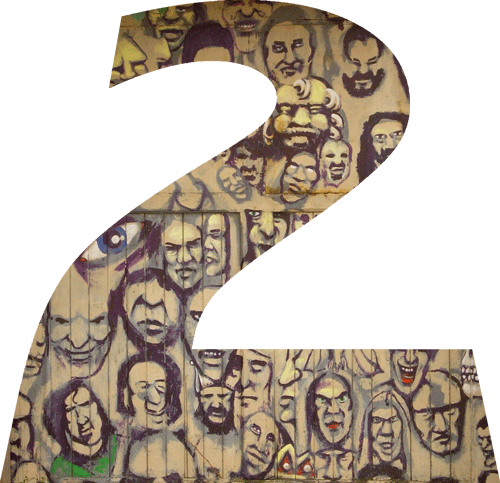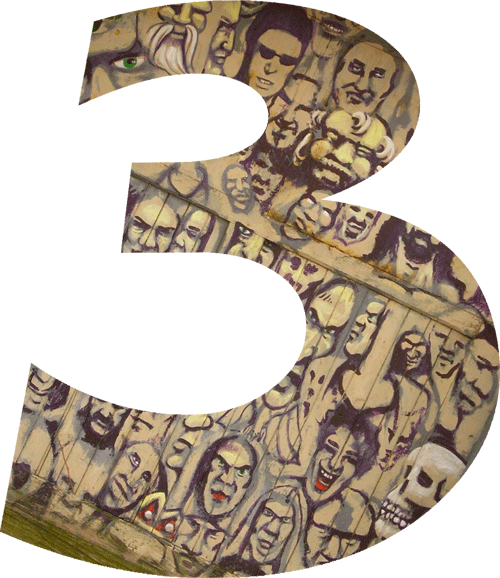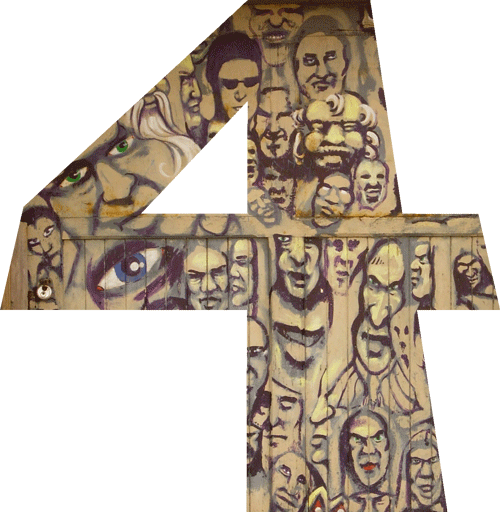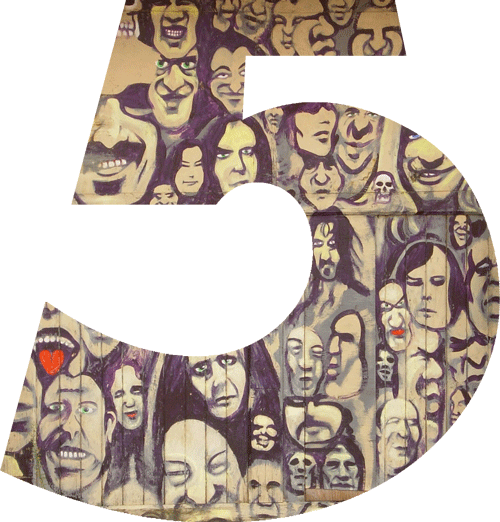J. K. Rowling's Harvard Commencement Address
http://paxonbothhouses.blogspot.com/2012/10/jk-rowlings-harvard-commencement-address.html
***
by Maria Popova
The great and terrible truth of clichés, why success is a dangerous bedfellow, and how disappointment paves the way for originality.
 It’s that time of year again, the time when cultural icons and luminaries of various stripes flock to podiums around the world to impart their wisdom on a fresh crop of graduating seniors hungry to take on the world. After last year’s omnibus of timeless commencement addresses by J. K. Rowling (“Climbing out of poverty by your own efforts, that is something on which to pride yourself. But poverty itself is romanticized only by fools.”),Steve Jobs (“You can’t connect the dots looking forward; you can only connect them looking backwards.”), Robert Krulwich (“You will build a body of work, but you will also build a body of affection, with the people you’ve helped who’ve helped you back. This is the era of Friends in Low Places.”), Meryl Streep (“This is your time, and it feels normal to you. But, really, there is no ‘normal.’ There’s only change, and resistance to it, and then more change.”), and Jeff Bezos (“Cleverness is a gift, kindness is a choice.”), here are five-ish more packets of timeless wisdom.
It’s that time of year again, the time when cultural icons and luminaries of various stripes flock to podiums around the world to impart their wisdom on a fresh crop of graduating seniors hungry to take on the world. After last year’s omnibus of timeless commencement addresses by J. K. Rowling (“Climbing out of poverty by your own efforts, that is something on which to pride yourself. But poverty itself is romanticized only by fools.”),Steve Jobs (“You can’t connect the dots looking forward; you can only connect them looking backwards.”), Robert Krulwich (“You will build a body of work, but you will also build a body of affection, with the people you’ve helped who’ve helped you back. This is the era of Friends in Low Places.”), Meryl Streep (“This is your time, and it feels normal to you. But, really, there is no ‘normal.’ There’s only change, and resistance to it, and then more change.”), and Jeff Bezos (“Cleverness is a gift, kindness is a choice.”), here are five-ish more packets of timeless wisdom.
Across them runs a common thread of what seems to be as much a critical message, the message, for the young as it is an essential lifelong reminder for all: No social convention of success should lure you away from or could be a substitute for finding your purpose and doing what you love.
 DAVID FOSTER WALLACE AT KENYON COLLEGE (2005)
DAVID FOSTER WALLACE AT KENYON COLLEGE (2005)
In 2005, David Foster Wallace addressed the graduating class at Kenyon College with a remarkable speech that revealed in equal measure his singular, potent, wildly eclectic mind and his wounded spirit, peeling the curtain on the triumphs and tragedies of being David Foster Wallace. When Wallace took his own life in 2008 in a way referenced from the podium, the address took on a whole new layer of meaning for those who revered, mourned, and tried to understand the beloved writer. In 2009, the speech was adapted into a short book titled This Is Water: Some Thoughts, Delivered on a Significant Occasion, about Living a Compassionate Life.
It is extremely difficult to stay alert and attentive, instead of getting hypnotized by the constant monologue inside your own head (may be happening right now). Twenty years after my own graduation, I have come gradually to understand that the liberal arts cliché about teaching you how to think is actually shorthand for a much deeper, more serious idea: learning how to think really means learning how to exercise some control over how and what you think. It means being conscious and aware enough to choose what you pay attention to and to choose how you construct meaning from experience. Because if you cannot exercise this kind of choice in adult life, you will be totally hosed. Think of the old cliché about “the mind being an excellent servant but a terrible master.”This, like many clichés, so lame and unexciting on the surface, actually expresses a great and terrible truth. It is not the least bit coincidental that adults who commit suicide with firearms almost always shoot themselves in: the head. They shoot the terrible master. And the truth is that most of these suicides are actually dead long before they pull the trigger.And I submit that this is what the real, no bullshit value of your liberal arts education is supposed to be about: how to keep from going through your comfortable, prosperous, respectable adult life dead, unconscious, a slave to your head and to your natural default setting of being uniquely, completely, imperially alone day in and day out.
Full transcript here.
 ELLEN DEGENERES AT TULANE (2009)
ELLEN DEGENERES AT TULANE (2009)
In 2009, the great Ellen DeGeneres — icon, notorious happy-dancer, and one of my big heroes — sent off the graduating “Katrina class” at New Orleans’ Tulane University with a hurricane of a speech that swirls you into a whirlwind of wit and humor, shakes you up with its humility and deeply personal candor, and puts you back down with a new understanding of
As you grow, you’ll realize the definition of success changes. For many of you, today, success is being able to hold down 20 shots of tequila. For me, the most important thing in your life is to live your life with integrity, and not to give into peer pressure. to try to be something that you’re not. To live your life as an honest and compassionate person. to contribute in some way. So to conclude my conclusion: follow your passion, stay true to yourself. Never follow anyone else’s path, unless you’re in the woods and you’re lost and you see a path, and by all means you should follow that.
 AARON SORKIN AT SYRACUSE UNIVERSITY (2012)
AARON SORKIN AT SYRACUSE UNIVERSITY (2012)
Earlier this week, Aaron Sorkin took the stage at Syracuse University and addressed the graduating class with equal parts wit, wisdom, and disarming candor. His remarks about how the government failed to address the dawn of the AIDS epidemic because a disease that affected mostly homosexuals didn’t seem worth the trouble, and how misguided that was in retrospect, make one think of the recent momentous strides forward for LGBT rights and wonder with what mix of bewilderment and shame we might look back on the days of government-sanctioned bigotry in a few decades.
Develop your own compass, and trust it. Take risks, dare to fail, remember the first person through the wall always gets hurt. My junior and senior years at Syracuse, I shared a five-bedroom apartment at the top of East Adams with four roommates, one of whom was a fellow theater major named Chris. Chris was a sweet guy with a sly sense of humor and a sunny stage presence. He was born out of his time, and would have felt most at home playing Mickey Rooney’s sidekick in “Babes on Broadway.” I had subscriptions back then to TIME and Newsweek. Chris used to enjoy making fun of what he felt was an odd interest in world events that had nothing to do with the arts. I lost touch with Chris after we graduated and so I’m not quite certain when he died. But I remember about a year and a half after the last time I saw him, I read an article in Newsweek about a virus that was burning its way across the country. The Centers for Disease Control was calling it “Acquired Immune Deficiency Syndrome” or AIDS for short. And they were asking the White House for $35 million for research, care and cure. The White House felt that $35 million was way too much money to spend on a disease that was only affecting homosexuals, and they passed. Which I’m sure they wouldn’t have done if they’d known that $35 million was a steal compared to the $2 billion it would cost only 10 years later.Am I saying that Chris would be alive today if only he’d readNewsweek? Of course not. But it seems to me that more and more we’ve come to expect less and less of each other, and that’s got to change. Your friends, your family, this school expect more of you than vocational success.
 BARACK OBAMA AT WESLEYAN (2008)
BARACK OBAMA AT WESLEYAN (2008)
Philosopher Daniel Dennett once offered his key to the secret of happiness: “Find something more important than you are and dedicate your life to it.” In his 2008 address to the graduating class at Wesleyan University, Barack Obama put it just as eloquently: “[O]ur individual salvation depends on collective salvation. Because thinking only about yourself, fulfilling your immediate wants and needs, betrays a poverty of ambition.”
[S]hould you take the path of service, should you choose to take up one of these causes as your own, know that you’ll experience the occasional frustrations and the occasional failures. Even your successes will be marked by imperfections and unintended consequences. I guarantee you, there will be times when friends or family urge you to pursue more sensible endeavors with more tangible rewards. And there will be times where you will be tempted to take their advice.But I hope you’ll remember, during those times of doubt and frustration, that there is nothing naïve about your impulse to change the world. Because all it takes is one act of service — one blow against injustice — to send forth what Robert Kennedy called that tiny ripple of hope. That’s what changes the world. That one act.
 CONAN O’BRIEN AT DARTMOUTH (2011)
CONAN O’BRIEN AT DARTMOUTH (2011)
Count on Conan to hit on the Big Truths with his signature blend of irreverence, self-derision, and keen cultural observation.
For decades, in show business, the ultimate goal of every comedian was to host The Tonight Show. It was the Holy Grail, and like many people I thought that achieving that goal would define me as successful. But that is not true. No specific job or career goal defines me, and it should not define you. In 2000 — in 2000 — I told graduates to not be afraid to fail, and I still believe that. But today I tell you that whether you fear it or not, disappointment will come. The beauty is that through disappointment you can gain clarity, and with clarity comes conviction and true originality.
BONUS: RAY BRADBURY (2001)
Though not technically a commencement speech, this remarkable keynote address by Ray Bradbury at The Sixth Annual Writer’s Symposium by the Sea is brimming with the kind of invaluable wisdom you wish someone had pinned to your mind in your early twenties, so you could laminate it for the rest of your life.
I want your loves to be multiple. I don’t want you to be a snob about anything. Anything you love, you do it. It’s got to be with a great sense of fun. Writing is not a serious business. It’s a joy and a celebration. You should be having fun with it. Ignore the authors who say “Oh, my God, what word? Oh, Jesus Christ…”, you know. Now, to hell with that. It’s not work. If it’s work, stop and do something else.Now, what I’m thinking of is, people always saying “Well, what do we do about a sudden blockage in your writing? What if you have a blockage and you don’t know what to do about it?” Well, it’s obvious you’re doing the wrong thing, don’t you? In the middle of writing something you go blank and your mind says: “No, that’s it.” Ok. You’re being warned, aren’t you? Your subconscious is saying “I don’t like you anymore. You’re writing about things I don’t give a damn for.” You’re being political, or you’re being socially aware. You’re writing things that will benefit the world. To hell with that! I don’t write things to benefit the world. If it happens that they do, swell. I didn’t set out to do that. I set out to have a hell of a lot of fun.I’ve never worked a day in my life. I’ve never worked a day in my life. The joy of writing has propelled me from day to day and year to year. I want you to envy me, my joy. Get out of here tonight and say: “Am I being joyful?” And if you’ve got a writer’s block, you can cure it this evening by stopping whatever you’re writing and doing something else. You picked the wrong subject.

No comments:
Post a Comment